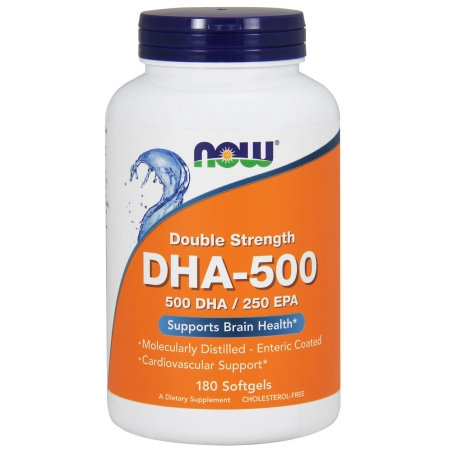Docosahexaenoic acid or DHA is a polyunsaturated fatty acid that contains 22 carbon and five double bonds in its structure. It is also considered as an important omega-3 fatty acid, which acts as the chief structural component of human brain and retina. DHA should be exclusively provided to infants for promoting the growth and functional development of their brain and required for supporting normal brain functioning in adults.
Bioactive metabolites of DHA
Several researches have shown that metabolites of DHA show various important biological effects within body such as modulating immune response, tissue regeneration, influencing lipid catabolism, augmenting calorie expenditure, resolving inflammation and wound healing. It has also seen that these metabolites are responsible for exerting several imperative biological actions like anti-hypertension, anti-hyperalgesia, anti-arrhythmia, anti-tumorigenesis activities and neuro-protections (Kuda, 2017).
The bioactive metabolites of DHA are listed below –
- Protectins
- Maresins
- Resolvins
- DHA epoxides
- Electrophilic oxo derivatives of DHA (EFOX)
- Ethanolamines
- Acylglycerols
- Neuroprostanes
- Docosahexaenoyl amides
- DHA branched ester of hydroxyl fatty acids
Sources
DHA is principally found in sea foods, especially in fishes but also present in plants. DHA can also be synthesized within body through alpha-linolenic acid. Foods, rich in DHA are listed below -

- Oysters
- Salmon
- Tuna
- Trout
- Processed fish or canned fish
- Cod
- Fish egg
- Herring, especially pickled herring
- Chia seed
- Brussels sprouts
- Hemp seed
- Algal oil
- Flaxseed
- Walnut
- It also found in breast milk
Mechanism of action
- DHA is principally found in cell membrane and acts through peroxisome proliferator activated receptors
- It has seen that DHA along with Eicosapentaenoic acid (EPA) act via two mechanisms which include-
- Conversion of DHA and EPA into inflammatory mediators by LOX and COX
- They entered within cells of the body by transporting via membranes and influence the transcription factors directly
- Basically, it helps to make the cell membrane dynamic and maintains the fluidity of the space between membrane and cells. It helps to speed up and improve the communication among nerve cells
- DHA is found mainly in brain and eye in highly concentrated form and helps to stimulate signaling between cells, leading to improve eyesight and brain functionality
Health benefits
Role on heart

- Being an omega-3 fatty acid, DHA helps to reduce the concentration of LDL, VLDL and triglycerides and improves the ratio of LDL and HDL in body
- It also helps to prevent inflammatory events of heart like atherosclerosis, thrombosis, coronary artery diseases and thus helps to reduce the prevalence of heart attacks and strokes
Role on brain development
- DHA is recognized as the main lipid of brain, essentially required for normal brain function and it is considered as the main structural component of nerve cell
- It helps to maintain the plasticity of the brain by promoting transmission through nerve cell and by preventing losses of scaffolding proteins and oxidative lipid degradation
- It helps to improve the learning ability and behavior among toddlers and children and essential for the optimal vision and cognitive development
- Consumption of DHA is related with preventing Alzheimer’s disease, Parkinson’s disease and related neurological disorders
Role on maternal health
- It is better to consume DHA during gestational period as it is closely related with the neurological development of the growing fetus
- It also helps to reduce pregnancy related complications and reduces the prevalence of preterm births and still births
- It has seen that children of mothers supplemented with DHA (during their pregnancy) have comparatively better cognitive ability, intelligence and memory than those children whose mother were not supplemented

Role on infancy
- During the first six months of life, DHA is exclusively required for infants to support the growth and development of central and peripheral nervous system. It has seen that deficiency of DHA in early childhood is responsible for developing poor literacy ability with poor memory and poor ability of performing mental tasks
- It is better to provide DHA along with arachidonic acid to infants for facilitating the optimum growth of central nervous system
- Recent researches have shown that DHA also plays important role on reducing bronchopulmonary dysplasia among preterm infants (Collins et al., 2016)
Role on preventing ADHD
- DHA is well known for its role on improving the symptoms of ADHD. Attention deficit hyperactivity disorder (ADHD) is an acute mental disorder characterized by difficulty in concentrating with impulsive behaviors and mainly occurs among children
- DHA helps to prevent ADHD by increasing blood flow within brain during the performance of mental task. It has seen that proper blood circulation in brain is associated with supplying sufficient oxygen and nutrients that help the brain cells to function properly
Role on preventing inflammation
- DHA helps to prevent inflammatory reactions of body and inhibits various chronic diseases like gum diseases, cardiac disorders, joint pain and swelling especially arthritis, autoimmune disorders (like rheumatoid arthritis), cancers and menstrual pain
- It has seen that DHA also helps to prevents muscle inflammation and soreness which is related with preventing muscle fatigue after exercise and promotes muscle recovery

Role on preventing cancer
- The anti-inflammatory activity of DHA is considered as the principle feature accountable for its anti-carcinogenic property
- DHA significantly helps to reduce the prevalence of prostate, pancreatic and colorectal cancers
- Recent studies have shown that obesity is one of the prevalent causes of developing cancers especially breast cancer within females. It has shown that consumption of polyunsaturated fatty acid especially DHA is associated with reducing the risk of developing breast cancers and its relapse (Molfino et al., 2016). So, it is better to consume fish oil or marine fish (richest source of DHA) for reducing its prevalence
Role on eye
- Several studies and researches have shown that omega-3 fatty acids are very important for maintaining normal physiology of eyes. Being an omega-3 fatty acid, DHA promotes eye health and prevents various disorders like, age related macular degeneration, severe forms of dry eye disorders and macular dystrophies (Georgiou and Prokopiou, 2016)
Role on reproduction
- DHA is one of the most significant fatty acid that has shown positive affect on sperm health
- Recent studies have shown that consumption of DHA is associated with increasing the seminal DHA concentration, sperm motility and sperm concentration that facilitates reproduction. Consumption of DHA is a healthy choice especially for infertile males for improving their sperm health as well as reproductive abilities (Hosseini et al., 2019)

Role on mental health
- DHA has significant role in reducing depression. DHA along with Ecosa Pentanoic Acid (EPA) help to regulate serotonin level of the body, which is responsible for balancing the mood
- The anti-inflammatory effects of DHA on nerve cells also associated with preventing depression
Recently, it has seen that a substantial deficiency of DHA occurred in diet and leads to dysfunction of nervous system and develops various degenerative diseases. These complications can be easily treated by consuming DHA through diet or supplements.

Source:
Cardoso, C., Afonso, C. and Bandarra, N.M., 2016. Dietary DHA and health: cognitive function ageing. Nutrition Research Reviews, 29(2), pp.281-294.
Collins, C.T., Gibson, R.A., Makrides, M., McPhee, A.J., Sullivan, T.R., Davis, P.G., Thio, M., Simmer, K. and Rajadurai, V.S., 2016. The N3RO trial: a randomised controlled trial of docosahexaenoic acid to reduce bronchopulmonary dysplasia in preterm infants< 29 weeks’ gestation. BMC pediatrics, 16(1), p.72.
Georgiou, T. and Prokopiou, E., 2016. Role of Omega-3 Fatty Acids for Eye Health. In Omega-3 Fatty Acids (pp. 251-261). Springer, Cham.
Hosseini, B., Nourmohamadi, M., Hajipour, S., Taghizadeh, M., Asemi, Z., Keshavarz, S.A. and Jafarnejad, S., 2019. The effect of omega-3 fatty acids, EPA, and/or DHA on male infertility: a systematic review and meta-analysis. Journal of dietary supplements, 16(2), pp.245-256.
Kuda, O., 2017. Bioactive metabolites of docosahexaenoic acid. Biochimie, 136, pp.12-20.
Molfino, A., Amabile, M.I., Monti, M., Arcieri, S., Rossi Fanelli, F. and Muscaritoli, M., 2016. The role of docosahexaenoic acid (DHA) in the control of obesity and metabolic derangements in breast cancer. International journal of molecular sciences, 17(4), p.505.
Suvarna, V. and Singh, V., 2019. DHA A Key Supplement for Neurologic Health—An Insight. In Omega Fatty Acids in Brain and Neurological Health (pp. 409-419). Academic Press.
Zhang, T.T., Xu, J., Wang, Y.M. and Xue, C.H., 2019. Health benefits of dietary marine DHA/EPA-enriched glycerophospholipids. Progress in Lipid Research, 75, p.100997.



